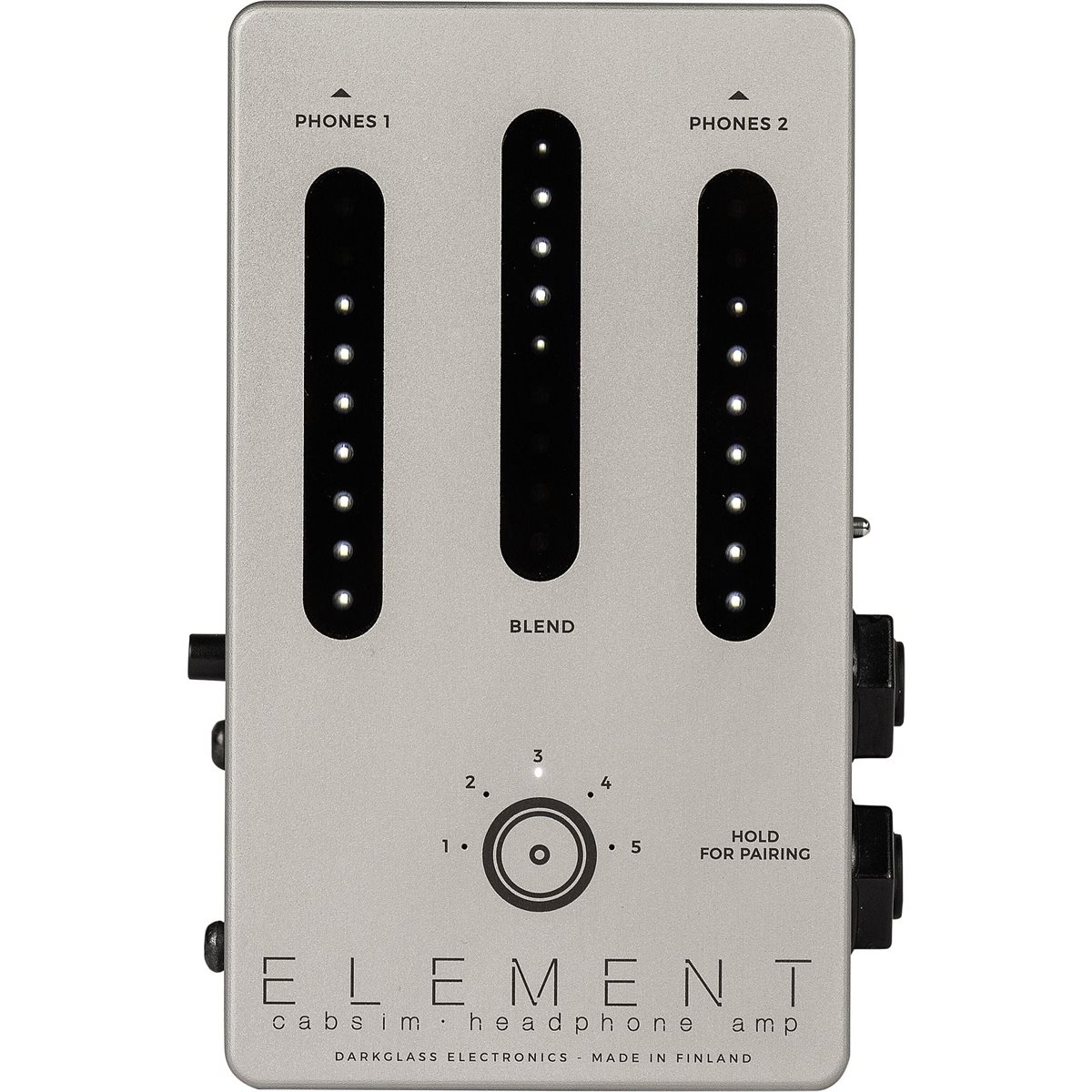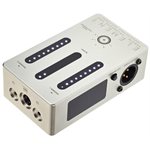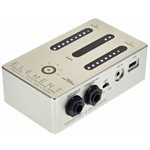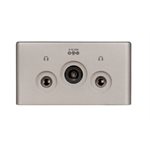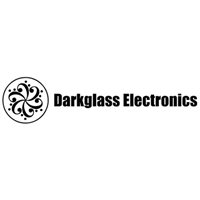-
- Some services are not accessible on smartphone
- Quick Order
- Register / Sign In
- Français
0
Products
(CAD $0.00)
My Cart - Quick Order
-
Our Products
- Basses
- Brass & Woodwinds
- Cables
- Clothing and Collectibles
- Drums
- Effects & Pedals
- Guitars
- Harmonicas / Accordions / Melodicas
- Microphones
-
Parts & Accessories
Parts & Accessories
- Harmonica/Accordion/Melodica Accessories
- Metronomes
- Micro Accessories
- Microphone Stands
- Music Stands and Accessories
- Others Accessories
- Pedal Cases & Bags
- Piano & Keyboard Accessories
- Pick
- Power Adapter
- Sound Systems Accessories
- Stringed Instrument Stands and Accessories
- Strings
- Tuners
- Ukulele Cases & Bags
- Ukulele/Mandoline/Banjo Straps
- Percussions
- Pianos & Keyboards
- Promotions
- Sound Systems
- Stringed Instruments
- Studio and Recording
- Ukuleles
- Brands
- Promotions
- Gift Card
- Home>
- Catalog>
- Effects & Pedals>
- Bass Effects & Pedals>
- DARKGLASS - Element - Cabinet Simulation / Headphone Amp
DARKGLASS - Element - Cabinet Simulation / Headphone Amp
Product Code: ELM
One comprehensive device, that out of the box offers a bank of 5 cabinet simulations, and the ability to change them through the Darkglass Suite, a multi-channel USB-C audio interface, Bluetooth technology to listen to backing tracks while playing, rehearsing, or studying. Two headphone outputs to allow interaction among musicians. XLR output to connect the Element to your external audio interface or PA system. With a uniquely innovative approach, the Element provides in one device an immensely practical tool to empower modern musicians.
Features
Phones
Two touch sensitive volume control sliders, one for each headphone output.
Blend
A touch sensitive slider to set the blend between the main input (Instrument/Amp in) and the backing track (Bluetooth/Aux in) for the headphone out mix.
USB
One USB-C port for transferring impulse responses and firmware XLR output updates
Aux In
You can connect the line/headphone out of your laptop/keyboard/mixer etc. into the 3.5 mm aux input on the Element.
DIMENSIONS
Width: 64 mm (2.95 in) | Height: 111 mm (4.37 in) | Depth : 35 mm (1.77 in)
WARNING
The Element has a current draw of 250mA. Only use a regulated 9V DC adapter with a center-negative plug. Due to ecological reasons, it does not accept batteries. Unregulated power supplies and/or higher voltages may result in suboptimal noise performance and even damage your unit, voiding the warranty.
Highlights
Darkglass Suite App (macOS, Windows, iOS & Android)
An application for desktop and mobile platforms that unlocks extra features on the Element, such as two different types of graphic EQs, tube power amp simulations, and access to a growing library of high-quality IR cabinet simulations. The desktop version also enables firmware updates and loading your own 3rd party cabinet simulations.
USB-C audio interface
Record your ideas wherever you are by connecting the Element to your PC or Mac (on macOS no drivers needed).
The instrument input records on two tracks, one with cabinet simulation and one without any effects.
Recording of stereo sources is also possible via the aux in. Independent mixes can be sent to the two headphone outputs from your favorite DAW.
USB
One USB-C port for enabling the audio interface feature, transferring impulse responses, and firmware updates.
XLR output
For connecting directly into an external audio interface, PA system, etc.
Connection diagrams
Element w/ pedalboard
Connect your instrument to your pedalboard as you normally would and add the Element at the end of the signal chain. Use the input labelled “INSTRUMENT IN” on the Element. You can now choose the impulse responses in slots 1-5 or the bypass signal. From here, the signal is passed through to the XLR output and via the blend and volume controls to the headphone outputs.
Element w/ amp & speaker cabinet
Note: The Element does NOT act as a loadbox! Always make sure your amplifier is connected to a suitable load!!!
The Element is built to work with amplifiers with a maximum output of 900 W. For the safest operation, it is advised to connect the Element after your speaker cabinet from your speaker cabinet’s parallel output connector. Use the input labelled “AMP IN” on the Element. You can now choose the impulse responses in slots 1-5 or the bypass signal. From here, the signal is passed through to the XLR output and via the blend and volume controls to the headphone outputs.
If the amplifier’s maximum output is 100 W, the Element can be connected between the amplifier and the speaker cabinet. Use the input labelled “AMP IN” for the amplifier and the output labelled “SPEAKER OUT” to connect the speaker cabinet to the Element. You can now choose the impulse responses in slots 1-5 or the bypass signal. From here, the signal is passed through to the XLR output and via the blend and volume controls to the headphone outputs.
If you are using a Darkglass amplifier with a class D poweramp, you have the option to connect the amplifier straight to the Element without using a speaker cabinet or an external load. Use the input labelled “AMP IN” on the Element. You can now choose the impulse responses in slots 1-5 or the bypass signal. From here, the signal is passed through to the XLR output and via the blend and volume controls to the headphone outputs.
WARNING
NEVER CONNECT AN AMPLIFIER TO “AMP IN” SIMULTANEOUSLY WITH AN INSTRUMENT TO “INSTRUMENT IN”!!! THIS COULD LEAD TO AN ELECTRIC SHOCK AND ALSO BREAK YOUR PRECIOUS EQUIPMENT!!!
Disclaimer
In the interest of continuous improvement, specifications are subject to change without notice. If you have any questions, please don’t hesitate to contact us at support@darkglass.com
The manufacturer claims that the above product fulfills the requirements as set by EN 62368-1:2014+A11:2017, EN 55032:2015, EN 55035:2017, EN 61000-3-2:2014, EN 61000-3-3:2013, EN 62479:2010, ETSI EN 300 328 V2.2.2 (2019-07), EN 62311:2008, ETSI EN 301 489-1 V2.2.3 (2019-11), ETSI EN 301 489-17 V.3.1.1 (2017-02), RoHS, WEEE.
Features
Phones
Two touch sensitive volume control sliders, one for each headphone output.
Blend
A touch sensitive slider to set the blend between the main input (Instrument/Amp in) and the backing track (Bluetooth/Aux in) for the headphone out mix.
USB
One USB-C port for transferring impulse responses and firmware XLR output updates
Aux In
You can connect the line/headphone out of your laptop/keyboard/mixer etc. into the 3.5 mm aux input on the Element.
DIMENSIONS
Width: 64 mm (2.95 in) | Height: 111 mm (4.37 in) | Depth : 35 mm (1.77 in)
WARNING
The Element has a current draw of 250mA. Only use a regulated 9V DC adapter with a center-negative plug. Due to ecological reasons, it does not accept batteries. Unregulated power supplies and/or higher voltages may result in suboptimal noise performance and even damage your unit, voiding the warranty.
Highlights
Darkglass Suite App (macOS, Windows, iOS & Android)
An application for desktop and mobile platforms that unlocks extra features on the Element, such as two different types of graphic EQs, tube power amp simulations, and access to a growing library of high-quality IR cabinet simulations. The desktop version also enables firmware updates and loading your own 3rd party cabinet simulations.
USB-C audio interface
Record your ideas wherever you are by connecting the Element to your PC or Mac (on macOS no drivers needed).
The instrument input records on two tracks, one with cabinet simulation and one without any effects.
Recording of stereo sources is also possible via the aux in. Independent mixes can be sent to the two headphone outputs from your favorite DAW.
USB
One USB-C port for enabling the audio interface feature, transferring impulse responses, and firmware updates.
XLR output
For connecting directly into an external audio interface, PA system, etc.
Connection diagrams
Element w/ pedalboard
Connect your instrument to your pedalboard as you normally would and add the Element at the end of the signal chain. Use the input labelled “INSTRUMENT IN” on the Element. You can now choose the impulse responses in slots 1-5 or the bypass signal. From here, the signal is passed through to the XLR output and via the blend and volume controls to the headphone outputs.
Element w/ amp & speaker cabinet
Note: The Element does NOT act as a loadbox! Always make sure your amplifier is connected to a suitable load!!!
The Element is built to work with amplifiers with a maximum output of 900 W. For the safest operation, it is advised to connect the Element after your speaker cabinet from your speaker cabinet’s parallel output connector. Use the input labelled “AMP IN” on the Element. You can now choose the impulse responses in slots 1-5 or the bypass signal. From here, the signal is passed through to the XLR output and via the blend and volume controls to the headphone outputs.
If the amplifier’s maximum output is 100 W, the Element can be connected between the amplifier and the speaker cabinet. Use the input labelled “AMP IN” for the amplifier and the output labelled “SPEAKER OUT” to connect the speaker cabinet to the Element. You can now choose the impulse responses in slots 1-5 or the bypass signal. From here, the signal is passed through to the XLR output and via the blend and volume controls to the headphone outputs.
If you are using a Darkglass amplifier with a class D poweramp, you have the option to connect the amplifier straight to the Element without using a speaker cabinet or an external load. Use the input labelled “AMP IN” on the Element. You can now choose the impulse responses in slots 1-5 or the bypass signal. From here, the signal is passed through to the XLR output and via the blend and volume controls to the headphone outputs.
WARNING
NEVER CONNECT AN AMPLIFIER TO “AMP IN” SIMULTANEOUSLY WITH AN INSTRUMENT TO “INSTRUMENT IN”!!! THIS COULD LEAD TO AN ELECTRIC SHOCK AND ALSO BREAK YOUR PRECIOUS EQUIPMENT!!!
Disclaimer
In the interest of continuous improvement, specifications are subject to change without notice. If you have any questions, please don’t hesitate to contact us at support@darkglass.com
The manufacturer claims that the above product fulfills the requirements as set by EN 62368-1:2014+A11:2017, EN 55032:2015, EN 55035:2017, EN 61000-3-2:2014, EN 61000-3-3:2013, EN 62479:2010, ETSI EN 300 328 V2.2.2 (2019-07), EN 62311:2008, ETSI EN 301 489-1 V2.2.3 (2019-11), ETSI EN 301 489-17 V.3.1.1 (2017-02), RoHS, WEEE.
- Condition : New
- Price range : 250$ - 499,99$
- Availability: In Stock

